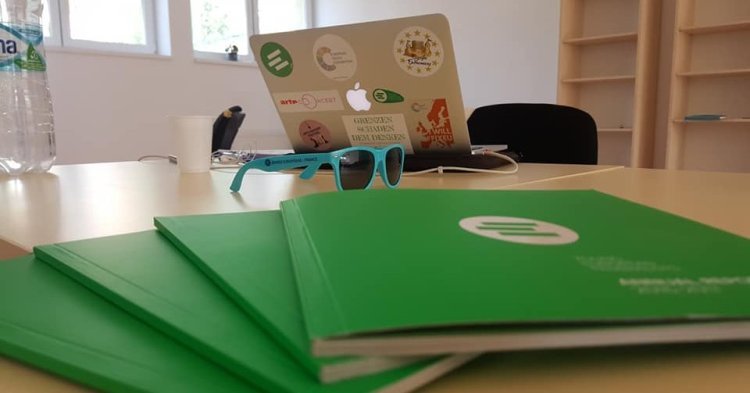Mobilisation for protests, combat against fake news: Transnational phenomena
Romania has seen continuous anti-corruption protests in response to the government’s controversial measures that have endangered judicial independence. Radu Dumitrescu and Ioana Abaseaca, who have attended the protests, shared first-person experiences from the demonstrations. They pointed out that the political scandals taking place in the country have paradoxically strengthened civil society, as movements and initiatives have sprung up to defend the judiciary.
A Bulgarian attendee, Simona Trifonova, drew comparisons to the protests against disability reforms planned by the country’s government, reminding that the phenomena under discussion are not confined to just one country. The discussions on fake news further revealed the transnational dimension: Lilia Zaharia from the Moldovan Stop Fals! network gave examples of similar fact-checking initiatives from various other countries, including the Czech Republic and Ukraine. The challenges that the different networks face are similar throughout.
One challenge that reputable media and anti-fake news networks have faced in Eastern Europe is malicious copycat sites posing as the original site – a form of organisational identity theft, if you like. As a result of past attacks, the Stop Fals! network has been forced to invest in a range of domain names to make posing as Stop Fals! more difficult in the future.
Nicu Ştefănuţă, an official who has intimately followed American politics, explained how fake news influenced the American presidential election in 2016. He pointed out that the next European elections will be crucially important, and warned against the risk of an attack on the election. Especially the “everyone is lying” narrative is dangerous, as it unmoors political debate from reality – Nicu Ştefănuţă traced this narrative back to the scandal around American claims about weapons of mass destruction in Iraq War. Against this backdrop, it is no wonder that casting light on the facts, and transparency, were among his tips for fighting fake news.
Bringing information to the community: Practical training
The world’s biggest initiative for chronicling facts is Wikipedia. How EU affairs are presented on the go-to source for basic facts about a topic has a social impact, and oftentimes there is a lack of up-to-date, extensive information even about some of the most core topics. English Wikipedia is the most developed, but in less-spoken languages there remain gaps. On the other hand, how JEF as an organisation presents itself on Wikipedia also is a matter of legitimacy: a large European-wide network deserves good-quality articles in the most important languages.
In just a couple of hours, the participants learned how to maneuver around on a new platform and brought new information to Wikipedia. Personally, I started articles about Manfred Weber and about Madeleina Kay on Finnish Wikipedia. Crucially, I noticed that on the article about the European Commission President on Finnish Wikipedia, there was no mention of the Spitzenkandidaten process. By writing just a couple of sourced paragraphs on the topic, I ensured that whoever reads the article before the European elections will learn about Spitzenkandidaten.
Another writing-themed workshop we had was an article writing bootcamp. In particular, we discussed different ways to structure an article to make the texts we publish on The New Federalist even more captivating in the future. Moreover, the brainstorm session for TNF’s future brought new ideas for European elections coverage and more – more will follow!


Follow the comments: |
|
